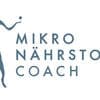Omega-3 fatty acids, vitamin E and carotenoids improve memory in the elderly
A new randomized clinical trial from Ireland has shown that a combination of omega-3 fatty acids, vitamin E and carotenoids can have positive effects on cognitive performance. In a double-blind, placebo-controlled, randomized clinical trial, healthy subjects over the age of 65 were given 1 g of fish oil (consisting of 430 mg docosahexaenoic acid and 90 mg eicosapentaenoic acid), 15 mg vitamin E and 22 mg carotenoids (consisting of 10 mg lutein, 10 mg meso-zeaxanthin and 2 mg zeaxanthin) or a placebo on a daily basis for 24 months. After the 24 months, subjects in the active group showed significantly fewer errors on memory tasks than those receiving placebo. Furthermore, statistically significant improvements in tissue carotenoid concentrations, plasma omega-3 concentrations, and serum carotenoid concentrations were seen in the active group compared directly to the placebo group. The magnitude of the changes in blood omega-3 and carotenoid concentrations and those in tissue carotenoid concentrations were related to the magnitude of changes in working memory performance.
All about Dementia diseases, Omega-3 fatty acids, Vitamin E & Carotenoids

























